This systematic review looks at all available evidence for pharmacological/neurosurgical interventions for managing dystonia in individuals with cerebral palsy to inform the AACPDM care pathway.
This webinar is with Ketrina Hazell, Ms. Wheelchair 2018, a young woman with cerebral palsy and Debbie Fink, Vice President of Education and Inclusion at the Cerebral Palsy Foundation, overseeing its flagship “Just Say Hi” program. This webinar is about Ketrina's lived experience in the school system and community and what worked or didn't work as she was growing up.
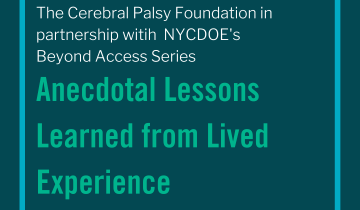
This webinar with Rachel Byrne, Ashley Harris Whaley and Debbie Fink, focusses on the shifting attitudes towards disabled individuals and authentic representation in media, social media and more.
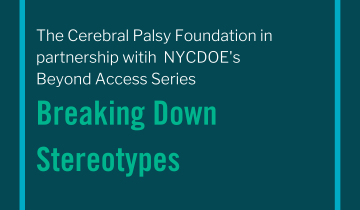
This webinar with Rachel Byrne, Executive Director of CPF, Ashley Harris Whaley, Director of Communities and Engagement at CPF and individual with with CP, and Debbie Fink, Vice President of Education and Inclusion at the Cerebral Palsy Foundation, overseeing its flagship “Just Say Hi” program, focusses on concepts and definitions addressing disability and how language has evolved.
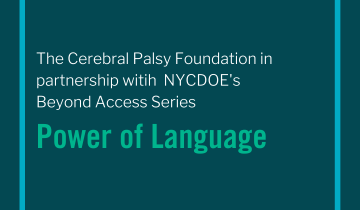
This webinar, with Ashley Harris Whaley, Director of Communities and Engagement, Rachel Byrne, Executive Director of CPF, and Debbie Fink, Vice President of Education and Inclusion at the Cerebral Palsy Foundation, overseeing its flagship “Just Say Hi” program, focusses on the terms "ableism" and "allyship" and ways to facilitate making connections in the schools and communities.
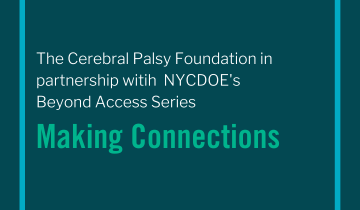
This webinar with Rachel Byrne, Executive Director of Cerebral Palsy Foundation, Ashley Harris Whaley, Director of Communities and Engagement, and Debbie Fink, Vice President of Education and Inclusion at the Cerebral Palsy Foundation, overseeing its flagship “Just Say Hi” program.This video series is a partnership with the New York City Department of Education and the Cerebral Palsy Foundation "Just Say Hi" Disability Education Curriculum. This series is meant to educate and empower parents of students with diverse needs.
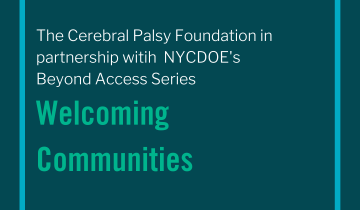
This webinar with Jennifer Lyman, Content Manager for CP Resource and parent of a teen son with with CP, and Debbie Fink, Vice President of Education and Inclusion at the Cerebral Palsy Foundation, overseeing its flagship “Just Say Hi” program. This webinar aims to help parents adapt and support academic success and participation at school and in the community.
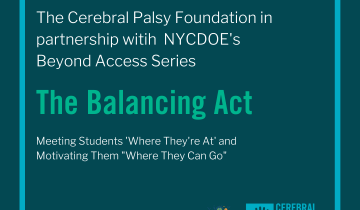
This webinar with Ashley Harris Whaley, Director of Communities and Engagement, Rachel Byrne, Executive Director of CPF, and Debbie Fink, Vice President of Education and Inclusion at the Cerebral Palsy Foundation, overseeing its flagship “Just Say Hi” program. It It aims to provide an overview of disability history and laws.
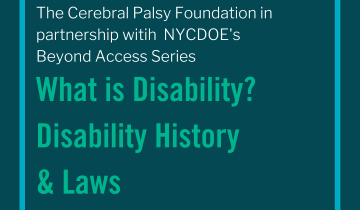
This webinar with Jacqueline Wentworth, Pediatric Occupational Therapist and individual with with CP, and Debbie Fink, Vice President of Education and Inclusion at the Cerebral Palsy Foundation, overseeing its flagship “Just Say Hi” program. This webinar aims to help parents adapt and support academic success at home.
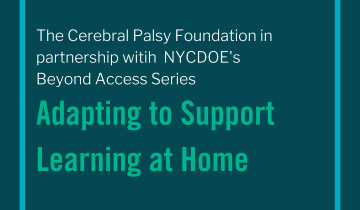
Many people do not know the difference between SSI and SSDI. It can be very confusing for a family or individual to understand what is available, and whether they will qualify. Very often, the recipients and their families do not even know which benefits they are receiving. But it is important to understand some basic information about government benefits. This post will focus on the two most common government benefits and give you a brief overview of how they work.
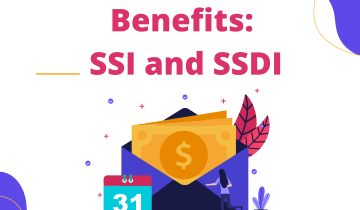
Setting up a Third Party-Special Needs trust as part of estate planning is essential if the individual with a disability is or may be eligible for means-tested government benefits. A properly set up Third Party Trust ensures that the funds left to the individual, whether through gift or inheritance, are not considered countable assets when applying for means tested benefits

In 2014 the Achieving a Better Life Experience Act was passed. The ABLE account is a tax-advantaged savings account for individuals with disabilities. The individual with the disability is the account owner and anyone can contribute to the account – the account beneficiary, family, friends, even a Special Needs Trust.

A special needs trust is a written legal agreement that enables an individual with a disability to qualify or remain qualified for means tested government benefits, such as medicaid, SSI or even medicaid waivers.
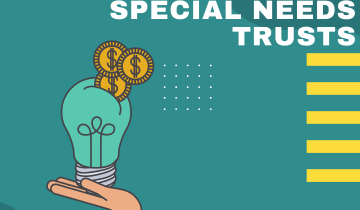
There are so many different causes for potential pain that it can be hard to find the cause. If you have CP or are a parent of someone with CP it is really important to empower yourself with information on pain including what causes it and options for treatment. You need to work out what is causing the pain not just mask it with pain medication.
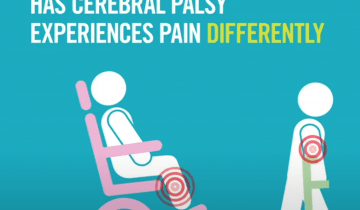
Oropharyngeal dysphagia, or OPD, is an impairment of the oral or pharyngeal phases of the swallow. This can impair muscle movements and coordination of the mouth, such as the lips, tongue, jaw, cheeks, palate, and also muscles of the pharynx and the entry to the airway.

When we have a physical disability, our bones can get a bit weak or osteoporotic. Something that can be improved is promoting bone health for people with cerebral palsy.


It is important to understand the brain injury for each individual person, because they can be really different. Where the injury is can give us important clues to what motor problems that individual will have. The time you have the biggest risk to having a stroke is as a baby, not as an adult so it is important to understand what may be happening in the infants brain.


